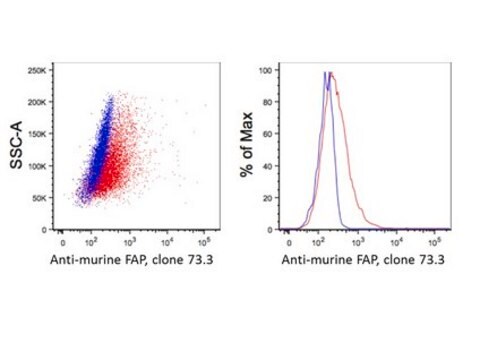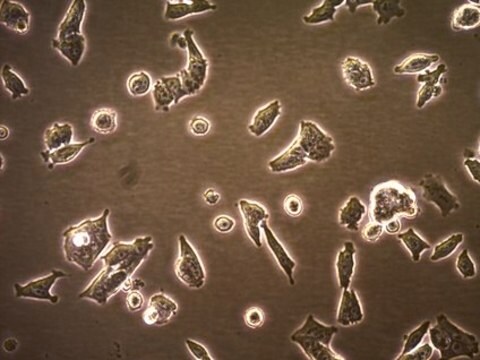05-1108
Anti-Insulin Antibody, clone1
clone MAB1, from mouse, purified by affinity chromatography
Synonym(s):
Anti-IDDM, Anti-IDDM1, Anti-IDDM2, Anti-ILPR, Anti-IRDN, Anti-MODY10, Anti-PNDM4
Sign Into View Organizational & Contract Pricing
Select a Size
All Photos(1)
Select a Size
Change View
About This Item
UNSPSC Code:
12352203
eCl@ss:
32160702
NACRES:
NA.41
Recommended Products
General description
Insulin is a polypeptide hormone that regulates carbohydrate metabolism. Apart from being the primary agent in carbohydrate homeostasis, it has effects on fat metabolism.
Specificity
This antibody recognizes an epitope including the amino acid B30.
Immunogen
Biosynthetic human insulin
Application
Anti-Insulin Antibody, clone1 is an antibody against Insulin for use in IH(P).
Research Category
Signaling
Signaling
Research Sub Category
Insulin/Energy Signaling
Insulin/Energy Signaling
Quality
Evaluated by Immunohistochemistry in human pancreas tissue.
Immunohistochemistry Analysis: 1.25 µg/mL of this antibody detected insulin in human pancreas tissue.
Immunohistochemistry Analysis: 1.25 µg/mL of this antibody detected insulin in human pancreas tissue.
Target description
Approx. 12 kDa
Linkage
Replaces: CBL71
Physical form
Affinity purified
The monoclonal is presented as 1mg in 1ml phosphate buffered saline containing 10mM sodium azide. We recommend that each laboratory determine an optimum working titre for use in its particular application.
Storage and Stability
Store at 2-8°C and use within 1 year from date of receipt.
Analysis Note
Control
Human pancreas tissue.
Human pancreas tissue.
Other Notes
Concentration: Please refer to the Certificate of Analysis for the lot-specific concentration.
Disclaimer
Unless otherwise stated in our catalog or other company documentation accompanying the product(s), our products are intended for research use only and are not to be used for any other purpose, which includes but is not limited to, unauthorized commercial uses, in vitro diagnostic uses, ex vivo or in vivo therapeutic uses or any type of consumption or application to humans or animals.
Not finding the right product?
Try our Product Selector Tool.
Storage Class
10 - Combustible liquids
wgk_germany
WGK 2
flash_point_f
Not applicable
flash_point_c
Not applicable
Certificates of Analysis (COA)
Search for Certificates of Analysis (COA) by entering the products Lot/Batch Number. Lot and Batch Numbers can be found on a product’s label following the words ‘Lot’ or ‘Batch’.
Already Own This Product?
Find documentation for the products that you have recently purchased in the Document Library.
Gladys Teitelman
The journal of histochemistry and cytochemistry : official journal of the Histochemistry Society, 68(10), 691-702 (2020-10-02)
In pancreatic beta cells, proinsulin (ProIN) undergoes folding in endoplasmic reticulum/Golgi system and is translocated to secretory vesicles for processing into insulin and C-peptide by the proprotein convertases (PC)1/3 and PC2, and carboxypeptidase E. Human beta cells show significant variation
Renaud Jacquemart et al.
Computational and structural biotechnology journal, 14, 309-318 (2016-08-30)
The current processing paradigm of large manufacturing facilities dedicated to single product production is no longer an effective approach for best manufacturing practices. Increasing competition for new indications and the launch of biosimilars for the monoclonal antibody market have put
Our team of scientists has experience in all areas of research including Life Science, Material Science, Chemical Synthesis, Chromatography, Analytical and many others.
Contact Technical Service







